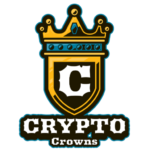
Decentralized blockchains are defined as those that are not controlled by any individual or organization. Experts say the main criteria for determining which blockchain is most decentralized include whether anyone can control it, how many nodes make up its network, and if identities on other chains cannot be verified.
The “what’s blockchain” is a question that has been asked many times. Experts have come up with answers for this question, but it can be difficult to find out which answer is the most accurate.
Mance is the co-founder and CEO of Hedera Hashgraph, a next-generation distributed ledger technology that promises to outperform current blockchain systems in terms of speed and security.
“I believe it is important to be clear about what we mean by decentralization when we discuss it. What exactly is being assessed when we speak about layer-one protocols when we talk about decentralization? There are two types of decentralization that are important: 1) transaction sequencing and 2) governance.
First, there’s governance: How many distinct entities (people or organizations) are engaged in creating product roadmap, service pricing, incentive payout, and other governance-related decisions? Is it possible for these entities to remain anonymous? If they can be anonymous, there’s no way to know how decentralized the governance is since the same anonymous actor might claim to be numerous organizations. Is there a chance for voting rights to be consolidated? If voting rights are linked to a governance token, for example, a single actor may grow their power by purchasing or earning more tokens, resulting in a consolidation of rights and greater centralization.
Among public ledgers, the Hedera Governing Council model is unique. It is made up of up to 39 term-limited organizations selected to represent a diverse variety of sectors, with member offices located all over the world and operating nodes on six continents. To promote fairness, stability, and fully decentralized decision-making, all council members are publicly declared, minutes of council sessions are published (and hashed on Hedera using the Hedera Consensus Service (HCS)), and each member gets a single vote. Even the LLC member agreement, which businesses must sign in order to join the council, is open to the public and discussed on HCS. Protocols managed by a limited set of core developers or a single foundation stand in striking contrast to this arrangement.
Then there’s transaction ordering decentralization: What is the smallest number of entities necessary to control the network’s transaction order? For example, in Bitcoin, only a few mining groups (typically five or fewer) control more than half of the network’s hashing power, which is enough to influence transaction sequencing. (At the time of writing, just three mining pools hold 47% of Bitcoin’s hashing power, while only two mining pools control almost 48% of Ethereum’s hashing power.) Furthermore, if a network enables anonymous node operators, it is hard to determine to what extent any specific party controls the network’s hashing power.
The Hedera network’s first phase needs more than two-thirds of its council members to agree on transaction sequencing, and each council member’s vote presently has equal weight. We can be guaranteed that transaction ordering is decentralized since every council member’s name is publicly published. Compared to Bitcoin and Ethereum, this is already more decentralized. Phase 2 will include publicly identified community nodes, and anonymous nodes will be introduced to the network only once there is a significant degree of assurance that stake consolidation is improbable.
The Hedera network was built from the bottom up to embrace the concepts of sustainable decentralization, both in terms of governance and technical transaction sequencing.”
{“@context”:”https://schema.org”,”@type”:”FAQPage”,”mainEntity”:[{“@type”:”Question”,”name”:”What is decentralized blockchain?”,”acceptedAnswer”:{“@type”:”Answer”,”text”:”A: Blockchain is a decentralized, distributed ledger technology. Its an open, anonymous way of recording transactions without the need for third-party verification or centralized regulation.”}},{“@type”:”Question”,”name”:”Is blockchain com decentralized?”,”acceptedAnswer”:{“@type”:”Answer”,”text”:””}},{“@type”:”Question”,”name”:”Why is blockchain decentralized?”,”acceptedAnswer”:{“@type”:”Answer”,”text”:”A: Blockchain is an open, distributed ledger that can store records of digital events. This means the data cannot be altered or deleted without it being noticed and recorded by everyone in the system. Furthermore, there are thousands of copies on every computer connected to the network at any given time which makes it hard for malicious parties to hack into one copy and alter its contents.”}}]}
Frequently Asked Questions
What is decentralized blockchain?
A: Blockchain is a decentralized, distributed ledger technology. Its an open, anonymous way of recording transactions without the need for third-party verification or centralized regulation.
Is blockchain com decentralized?
Why is blockchain decentralized?
A: Blockchain is an open, distributed ledger that can store records of digital events. This means the data cannot be altered or deleted without it being noticed and recorded by everyone in the system. Furthermore, there are thousands of copies on every computer connected to the network at any given time which makes it hard for malicious parties to hack into one copy and alter its contents.
Related Tags
- what are blockchains
- decentralized currency
- blockchain news


